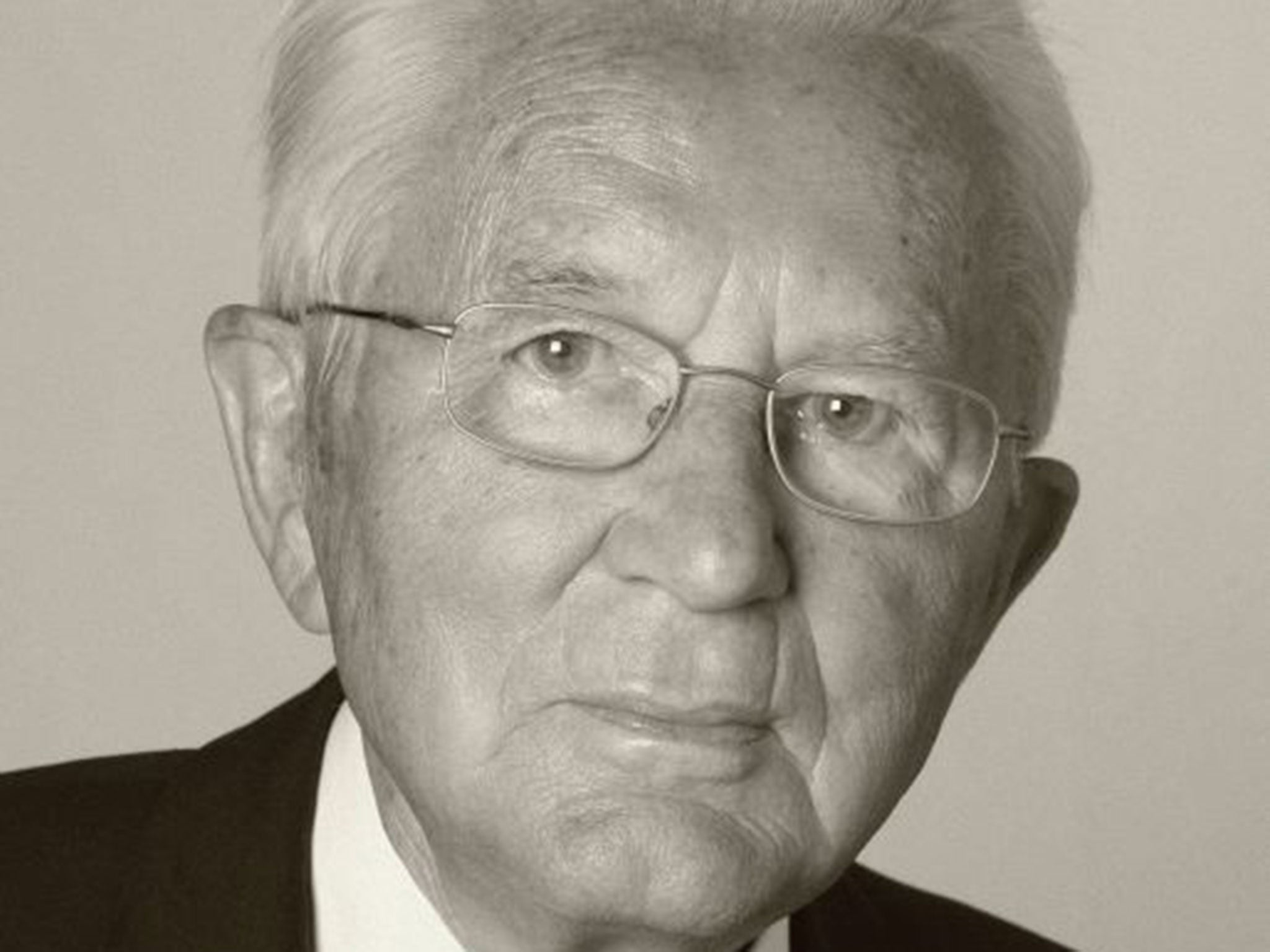Karl Albrecht: Businessman who with his brother Theo established the Aldi discount supermarket chain as a global market leader

Karl Albrecht was the billionaire entrepreneur who with his brother, Theo Albrecht (Independent obituary, 14 August 2010), created the successful international discount supermarket chain, Aldi. At the time of his death he was the richest person in Germany, with an estimated fortune of around $26 billion.
He was born in 1920 in Schonnebeck, a suburb of Essen, in the industrial Ruhr area of Germany. His father, also Karl, was a miner who became a baker after contracting emphysema. His mother, Anna Siepmann, ran a grocery store which she had established in 1913.
The brothers worked in the shop as youngsters, inspiring and anticipating their future business activities. On the outbreak of war they were conscripted into the Wehrmacht. Theo served in the Afrika Korps and was captured by the US Army in Tunisia in 1945, while Karl was wounded on the Russian front and also ended up in a prisoner-of-war camp.
Released and returned to their badly damaged city, the brothers took over their mother's shop, which had escaped the worst of the bombing. Within seven years they had expanded to a chain of 30 grocery stores across the region, up and down the Rhine. Their aim was to offer a limited range of inexpensive but high-quality products, with the motto "The best quality at the lowest price". This remained a life-long mission for the pair, who were able to turn their ideals into reality, as pioneers in their field.
Their no-frills approach, which continues to this day, saw products not displayed on shelves but remaining in their packing boxes, stacked on wooden pallets. Stores would not have publicly listed telephone numbers, to avoid distracting staff, and the brothers were renowned for their habit of using simple stub pencils in meetings rather than fountain pens.
The first Aldi (Albrecht Discount) supermarket opened in 1962 and their initial foray into international markets came five years later when the company took over the Hofer chain in Austria. The first store in the US followed in 1976, competing head-to-head with the established giant, Wal-Mart, which has since tried and failed to attack Aldi's position in Germany. Aldi now generates the majority of its sales internationally.
Despite being seen as business outsiders for many decades, the brothers remained steadfast in their belief in their low-cost, high-quality model. They split their business into two distinct groups, Aldi Nord, managed by Theo, and Aldi Süd, managed by Karl, following a disagreement in the early 1960s over whether or not they should sell cigarettes. Aldi Süd covers the southern and western parts of Germany as well as the UK and US, among other areas.
The brothers were known for their secretive and reclusive nature, giving no interviews and appearing only very rarely. This was in part due to the 1971 kidnapping of Theo, during which he was held for 17 days and only released following the payment of a seven million Deutschmark (£2.2 million) ransom, negotiated by the Bishop of Essen, Franz Hengsbach. While half the money was recovered when the amateur kidnappers were caught and imprisoned, a canny Theo subsequently tried to reclaim the remaining ransom as a business expense, unsuccessfully arguing in court that it should be tax-deductible.
Two years later Karl established three entities: the Siepmann Foundation, named after his mother, which controls the Aldi South supermarket empire and which will ensure the continuity of the business following his death; the Elisen Foundation, supporting cultural projects; and the Oertel Trust, which funds medical research. Aside from his business activities, Karl was also an avid golfer who in 1976 commissioned the development of Öschberghof, a four-star hotel and golf course in Donaueschingen in the Black Forest.
He retired from the business in 1995, aged 75, but still retained a keen interest in the operation of the supermarket. By last year Aldi had become the 11th largest retailer in the world. Following Theo's death in 2010 the magazine Der Spiegel reflected on the company's success: "Aldi is Germany, and Germany is Aldi. This sense of order, this devotion to efficiency, the sparse logic of logistics and above all, determined thrift."
A spokesman for the company told The Independent, "Karl Albrecht developed a company culture based on mutual respect. He put his trust in his employees, had confidence in their talents and offered them the opportunity to realise their potential - not only for the benefit of the group but also for the satisfaction of his employees. He was a fair and reliable business person, a man who lived his convictions and Christian values and was a true role model."
This year's annual Which? survey named Aldi the UK's favourite supermarket. While some commentators have suggested that they have had a significant effect on sales at the British "big four" – Tesco, Asda, Sainsbury's and Morrisons – in fact their impact so far has been small, with a market share of 4.6 per cent from their 500 stores. But what Aldi has certainly achieved is to make British consumers reconsider their retail loyalties and to question and re-evaluate their previously class-based supermarket shopping choices.
MARCUS WILLIAMSON
Karl Albrecht, businessman: born Essen, Germany 20 February 1920; married Maria (died 2013; one son, one daughter); died Essen 16 July 2014.
Join our commenting forum
Join thought-provoking conversations, follow other Independent readers and see their replies
Comments